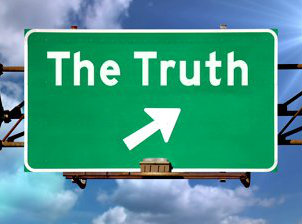 This is a continuation of yesterday’s From Hell to Crazy Town.
This is a continuation of yesterday’s From Hell to Crazy Town.
Before jumping in, though, I thought I’d take a moment to discuss something that invariably arises whenever I initiate the kind of conversation with which we’re now engaged; namely, that I believe whatever I do because I’m a liberal, or “progressive,” Christian.
When I first started thinking about problematic Christian issues—whether or not hell is real, whether God considers homosexual love in and of itself sinful, whether or not non-Christians can make it into heaven—I had no agenda whatsoever. I couldn’t have. I was too new to Christianity.
At the moment I suddenly and out of nowhere became a Christian, all I “knew” (the quotes by way of acknowledging the eradicable difference between subjective and objective knowledge) was that the core Christian story was true: that God, wanting to alleviate people’s suffering, incarnated himself as Jesus, took into his body what amounts to all the world’s negative karma, and in the most dramatic fashion possible (which ensured it was never forgotten) obliterated that body, and thereby established a means by which any person, at any time, could fully reconcile themselves to God.
That’s all I knew. That was the totality of what got rather intrusively imprinted upon me at the moment of my conversion. Beyond that I had zero thoughts about Christ, or God, or anything related to them. I didn’t know homosexuality was an issue for Christians. I didn’t know anyone thought women should or shouldn’t be pastors. I knew it was pretty insufferably obnoxious for Christians to act like only they could get into heaven, but I didn’t know there was an actual doctrine behind that. Beyond their actual European history, I barely knew the difference between Catholics and Protestants.
I just never cared much about Christianity. Because it always seemed too stupid to care much about. Sexually repressed, passive-aggressive non-geniuses wanting Big Daddy in the sky to like them most of all, so that they can live happily ever after.
I mean, you know: not exactly alluring, this side of a lobotomy.
Anyway, once God broadsided me in a way even I couldn’t ignore, I thought, “Oh. Well, that’s a game changer.” And then I entered the game of Christianity. Then I learned about all the controversies percolating away within this group into which I’d been so summarily recruited.
Well, upon my conversion it did not occur to me that I was supposed to stop thinking. God didn’t come to me, and say, “Believe in Jesus Christ! Now go home and throw away all your books! And dumb up your talking a little! And ignore the fact that Christian music is the sonic equivalent of baby food! Enjoy it! Sing along!”
Nothing like that happened. (Interestingly enough, though, what did happen is that just about the third thing I thought following my knocked-to-my-knees moment—the Big Thought that came to me just as I was reaching for the doorknob leading from the little room I was in back to the outside world—was: “It is not now my mission to turn non-Christians into Christians. That is not part of being Christian.” Weird thing to have come over you just then, right? But it’s that moment which later led me to write I’m OK – You’re Not: The Message We’re Sending Nonbelievers, and Why We Should Stop.)
When I think and write about these things, I’m more than prepared to be wrong. I welcome the chance to learn that I am wrong. It’s for that very reason that I take the time to so carefully mark each step of my way along these paths. If I misstep, I want someone to tell me where and how I’ve done so. I want to hear of an error in my reasoning, an inconsistency to my logic. That way I’ll learn. That way we all will. How can that be a bad thing?
I’m just like anyone else. I like belonging to a loving and supportive group. I like knowing that I’m aligned with what’s best and good. But those kinds of desires cannot stop me from noticing that, say, “God is loving and all-powerful,” and “God punishes everyone who doesn’t worship him by burning them alive throughout all of eternity” are statements so blatantly incongruous that they positively scream for reconciliation. And shrugging and claiming inviolate ignorance of God’s ways and will is a shamefully inadequate response to that incongruity. It’s like me repeatedly punching someone, while all along saying, “Gosh, that’s weird. I wonder why this person here keeps getting punched? Oh, well. What can we do? It’s hard to figure out these kinds of mysteries.” Punch, punch, punch.
We must never fail to go where sound reasoning take us. Doing so means failing to live up to our potential. If we believe in God, then we must believe that God desires us to use the agile, capable minds with which he blessed us. And we must furthermore believe that God is not in the slightest way threatened by our doing so.
Jesus promised that the truth would set us free. It then follows that we should always endeavor to discover the truth. And I see no reason not to do so fully confident that the nearer we draw to the truth, the nearer we draw to God.
I don’t care if it’s liberal or conservative. I just want the truth.
Follow-up: Is hell necessary?












